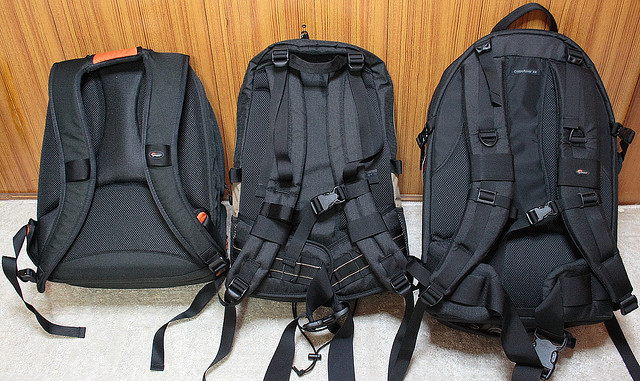“Vacation” is a magic word.Use it in a conversation and people are likely to momentarily spirit off to their private bit of paradise; disappear to somewhere that exists between fantasy and the world-as-we-know-it.But even Harry Potter puts in long hours of preparation to work his magic.So,what’s the magic formula for conjuring up a charmed vacation?
First,open up your own personal travel style for inspection.Add a pinch of experience from each of the Six Knows below and you will spice your formula with the wisdom of other travelers with disabilities. Stir it up with a friend or travel agent.Then get out there and see the world!
Know Yourself
Socrates said,“The unexamined life is not worth living.” Take it from me,it’s not worth carting along on the road with you either.
First off,ask yourself: What would make this vacation a success for you? Try to answer that question even before you decide on a destination,a reservation,or a travel companion.Pare down to the nonnegotiables.Are you looking for quiet rejuvenation — or exhilaration? Do you have strict budget limits — or room to splurge? Does success mean having sun,snow,a tropical rainstorm — or are you content with whatever comes along? Do you have “must includes” for your trip such as a food,an event — or a language?
Secondly,review your physical health.Do it with your physician if necessary.How is your physical strength? Your stamina? Your immune system? Are you in physical pain that would influence your travel plans? Are your medications working correctly and do you have enough to bring on the trip?
What about your mental health? How is your emotional resilience? What’s the recent pattern of your moods? Are your dreams or fantasy life telling you something about how you might react to travel right now?
Know Your Equipment
Take responsibility to know your own equipment.Know their equipment too!
Do you know it as well as,if not better than the people who sold it to you? Have you made a toolkit with everything you need for repairs? Do you pack it in carry-on,not checked luggage? Have you prepared an instruction sheet,with illustrations,on assembly and the disassembly of your equipment? How many languages is it in? Did you arrange for an equipment check-up before you left? Have you brought along replacements for items that frequently fail? Do you know of vendors at your destinations that can repair your equipment in an emergency? As preventative maintenance for yourself as well as looking out for others in the disabled community,do you know how to report equipment failures to your vendor and the manufacturer? How to pass along with any suggested solutions you may have?
There is a catch to this category.The line between your equipment and their equipment becomes fuzzy when your comfort and safety depends on the transportation company’s vehicle.
Do you know how to troubleshoot a lift on a van for an inexperienced driver? Can you instruct the baggage crew on how to stow your wheelchair, walker,or scooter? Handle your respirator or oxygen bottle? Have you memorized the accessibility features of various airplanes by make and model of the aircraft? Can you show the flight attendant the location of the button to unlock movable airline seat arms?
Language teachers and travel gurus may tell you that the most important first words to learn in another language are “Please” or “Thank you.” I tend to prefer to master words like “Nyet!” (“No!”; Russian),”Rollstuhl” (“wheelchair”; German),”Kaaga” (“mine”; Somali),and useful phrases like “De jeito nenhum!” (roughly and in context,”Don’t mess with that wheelchair!”; Portuguese).
Know Your Safety Net
Life is tough.(That’s probably why you want to go on vacation in the first place!) Traveling with a disability can be a test of skill.Expect the unexpected,“what if” around worst cases,and then strategize about how to deal with what you discover.
Did you leave a copy of your itinerary with friends and family back home? Have you established a schedule for periodically contacting people back home? Do they know what to do if they don’t hear from you? If you have friends or contacts at your destination,have you double checked to see that all contact information is up to date and correct? Do you know how your travel companion responds in an emergency? Have you discussed various emergency scenarios with him or her?
Does your personal insurance cover you while out of the country? Do you have travel insurance to make up the difference between what the airline will pay if they damage of your equipment and the actual replacement cost? Do you have necessary vaccinations,medicine, prescriptions,and letters of medical necessity? Are your money and important documents kept in a secure place?
Do you have multiple copies of information such as contact names and addresses or what to do if your credit card is stolen? Are those copies distributed between various carry-on and checked-in items?
Know Your Rights And Responsibilities
Laws,policies,business practices,and cultural norms change from region to region and country to country.Don’t be easily discouraged. Keeping track of the specifics merits an advanced degree in traveling with a disability.Be as knowledgeable as possible.
At what point in a trip involving air travel does the Americans with Disabilities Act (ADA) jurisdiction end and the Air Carriers Access Act (ACAA) begin? What accessibility features are required by law if the airplane has more than 30 seats? If it is wide-body with more than two aisles? Can you advocate for the rights you have with a Canada carrier? A European airline?
What responsibility do you have for knowing your rights? For effectively communicating your needs? Are you able to advocate for your own rights in a way that leaves the person you are confronting better educated and more likely to assist the next passenger with a disability? Do you make use of the airline’s Complaints Resolution Officer (CRO)? Do you share what you have learned about traveling with others in the disabled community?
Know Your Travel Companion
Be your own best companion first.Know what you expect out of a travel companion.
A travel companion,especially a good friend,can sometimes be a mirror.Don’t burden them with the thankless job of reflecting back someone who you don’t want to see.There is never a shortage of legitimate reasons to squabble when traveling and in close quarters! What does he or she expect out of you? Can you honestly and clearly communicate your own limits? Do you know each other’s habits with smoking,drinking,drugs? Each other’s sleep patterns and pet peeves? Do you have an agreement about borrowing and lending items or money while traveling? Have you established rules for disagreeing? For fighting? Are you comfortable discussing your disability with your potential companion? Have you done so already? Have you started getting to know your travel companion long enough before the trip to allow each of you to evolve a realistic set of expectations for your travel together?
Maybe your fellow traveler is a service or companion animal companion or a pet.
Have you arranged for the necessary health exams and vaccinations? Do you know the companion animal policies relevant to transportation, lodging,or foreign travel? Have you prepared for the effect of a different climate or a different diet? Can you be certain that your companion will receive adequate exercise and have access to emergency medical care?
Know Your Destination
Destination research is the least overlooked of the Six Knows. Common holiday spots can be very effective in communicating their image and appeal.The danger lies in being lulled into assuming that the specific accessibility information that you need is as easily available.
Can you read critically through marketing materials for the facts? Have you developed successful strategies for getting the accessibility information you need? Have you researched the accessibility of local hotels and resorts? What about theaters,restaurants,music and sport venues? Are local tourist attractions independently accessible or is accessibility available through prior arrangement? Will you be able to get what you need from car rental agencies? Bus and rail systems? Taxi companies? Have you taken the time to find,or train, a good travel agent? Can you identify agencies like tourist boards or chambers of commerce that might be of help? Have you located and used online bulletin boards serving people with disabilities?
Travel can be a time of self transformation.You can grow in confidence and self-esteem while gathering memories that will last a lifetime. One way to guarantee that the memories will be positive is to prepare with the six knows.




